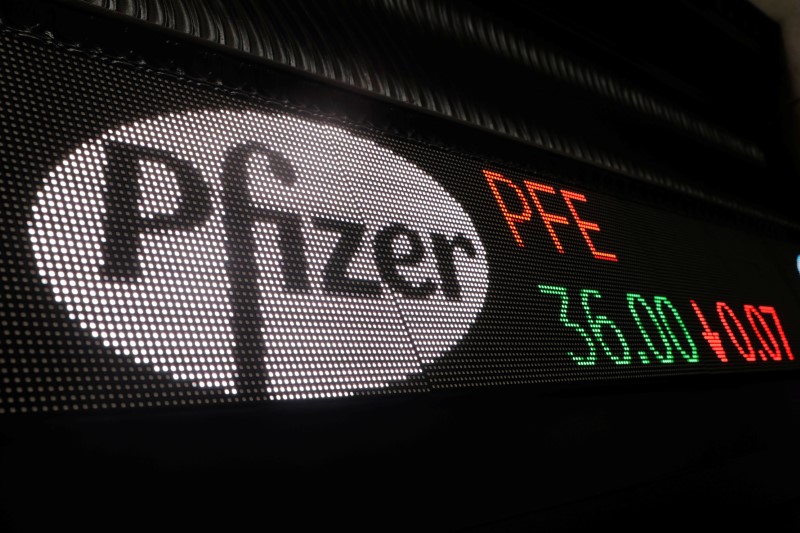Who is Kevin Hassett? Wolfe looks at the Trump ally tipped to become Fed Chair.
Pfizer (NYSE:PFE)'s Third Quarter 2023 Earnings Call highlighted a strong performance from its non-COVID products, a busy pipeline with multiple upcoming launches, and significant strides in its proposed acquisition of Seagen. The company treated over 457 million patients with its medicines and vaccines in the first nine months of the year, marking a 10% growth in revenue compared to the same period in 2022. Pfizer's newly launched RSV vaccine, ABRYSVO, contributed $375 million in US revenues, with the company expecting it to become a significant revenue contributor.
Key takeaways from the call include:
- Pfizer's non-COVID products, including Nurtec, Vydura, Oxbryta, Vyndaqel, and Prevnar, showed strong growth, and the company is on track to deliver 6-8% operational revenue growth for these products for the full year.
- Pfizer's proposed acquisition of Seagen is expected to close in late 2023 or early 2024, and the company has raised $31 billion in acquisition financing so far.
- Pfizer's Q3 revenues declined by 41% due to decreased sales of Paxlovid and Comirnaty, resulting in a loss per share of $0.42. However, excluding these products, the company reported strong operational revenue growth of 10%.
- Pfizer updated its full-year guidance, expecting revenues of $58-61 billion and adjusted diluted earnings per share of $1.45-1.65.
- Pfizer CEO Albert Bourla discussed the company's portfolio and future plans, expressing enthusiasm for the danu GLP-1 program and the potential for interim analysis and final analysis of the data.
Despite a decline in Q3 revenues due to decreased sales of Paxlovid and Comirnaty, Pfizer reported strong operational revenue growth of 10% when excluding these products. The newly approved RSV vaccine and products associated with Prevnar and Vyndaqel contributed to this growth, as did recently acquired products Nurtec and Oxbryta.
Pfizer's CEO, Albert Bourla, discussed the company's future plans during the call, mentioning that combination vaccines with convenience and zero copay for payers could increase vaccination rates. Bourla expressed enthusiasm for the danu GLP-1 program and the potential for interim and final analysis of the data. He also commented on the recent failures in the DMD gene therapy space, expressing hope for a solution for patients.
The company's executives provided updates on various topics, including the upcoming efficacy data for danuglipron, the company's leading pipeline candidate, and the performance of Nurtec. They also discussed the acquisition of Seagen and its potential impact on Pfizer's pipeline and commercial investments.
The call concluded with a positive outlook for Pfizer's future, with a strong performance in its non-COVID portfolio and optimism about the potential impact of the Seagen acquisition in oncology. Pfizer's executives clarified their revenue projections, stating that they have acquired $20 billion so far and expect to acquire $25 billion by 2030. They highlighted the performance of their core business and their optimism about the future.
This article was generated with the support of AI and reviewed by an editor. For more information see our T&C.
